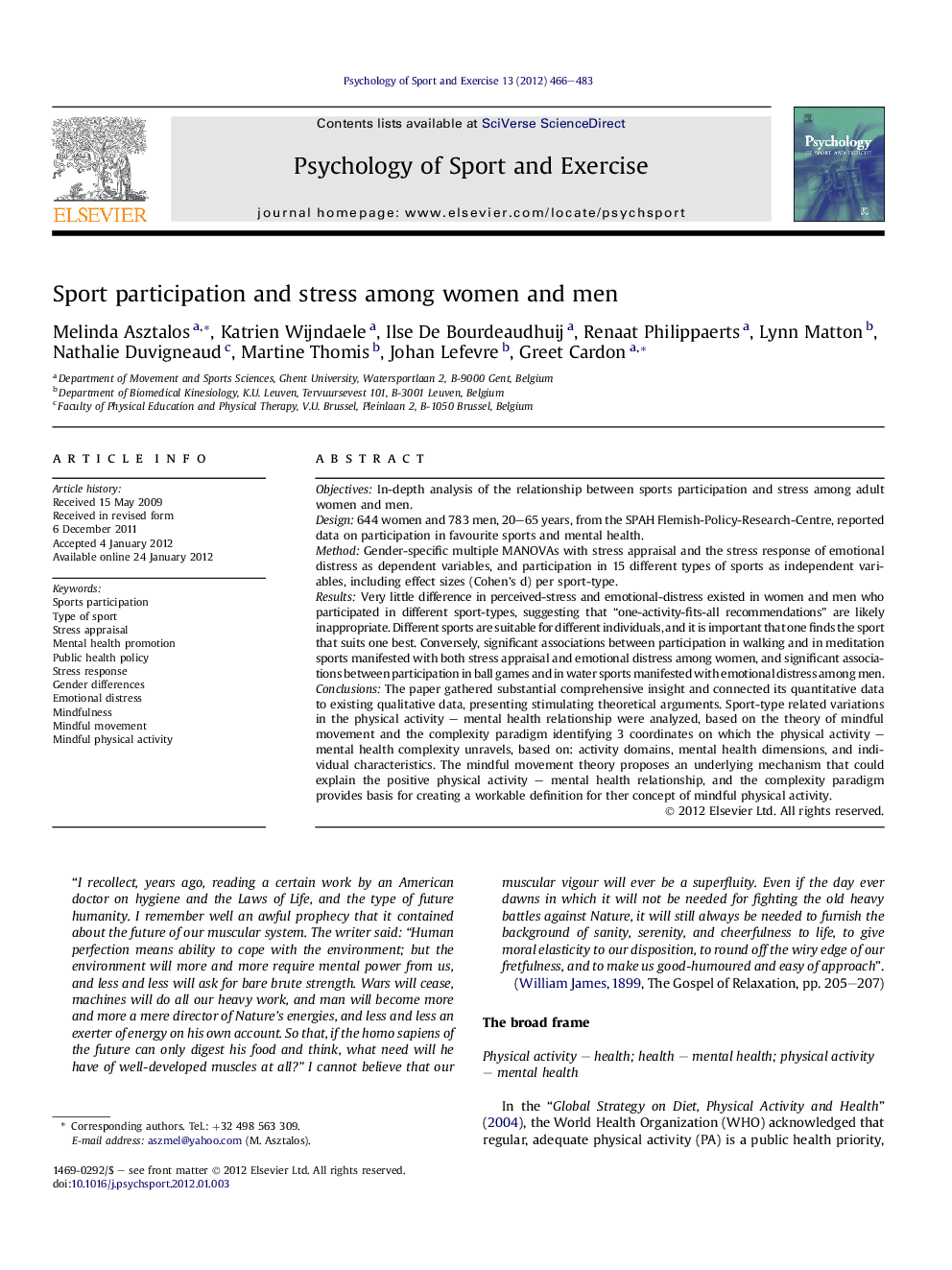| Article ID | Journal | Published Year | Pages | File Type |
|---|---|---|---|---|
| 894735 | Psychology of Sport and Exercise | 2012 | 18 Pages |
ObjectivesIn-depth analysis of the relationship between sports participation and stress among adult women and men.Design644 women and 783 men, 20–65 years, from the SPAH Flemish-Policy-Research-Centre, reported data on participation in favourite sports and mental health.MethodGender-specific multiple MANOVAs with stress appraisal and the stress response of emotional distress as dependent variables, and participation in 15 different types of sports as independent variables, including effect sizes (Cohen’s d) per sport-type.ResultsVery little difference in perceived-stress and emotional-distress existed in women and men who participated in different sport-types, suggesting that “one-activity-fits-all recommendations” are likely inappropriate. Different sports are suitable for different individuals, and it is important that one finds the sport that suits one best. Conversely, significant associations between participation in walking and in meditation sports manifested with both stress appraisal and emotional distress among women, and significant associations between participation in ball games and in water sports manifested with emotional distress among men.ConclusionsThe paper gathered substantial comprehensive insight and connected its quantitative data to existing qualitative data, presenting stimulating theoretical arguments. Sport-type related variations in the physical activity – mental health relationship were analyzed, based on the theory of mindful movement and the complexity paradigm identifying 3 coordinates on which the physical activity – mental health complexity unravels, based on: activity domains, mental health dimensions, and individual characteristics. The mindful movement theory proposes an underlying mechanism that could explain the positive physical activity – mental health relationship, and the complexity paradigm provides basis for creating a workable definition for ther concept of mindful physical activity.
► sport-type related variation in the physical activity mental health relationship. ► 15 different types of sports (personally favoured by participants). ► stress appraisal and the stress response of emotional distress. ► gender specific analyses & elaborated theoretical reasoning on the findings. ► matching sport-type with personal preference is more important than the type of sport per se as far as mental health benefits are concerned.
